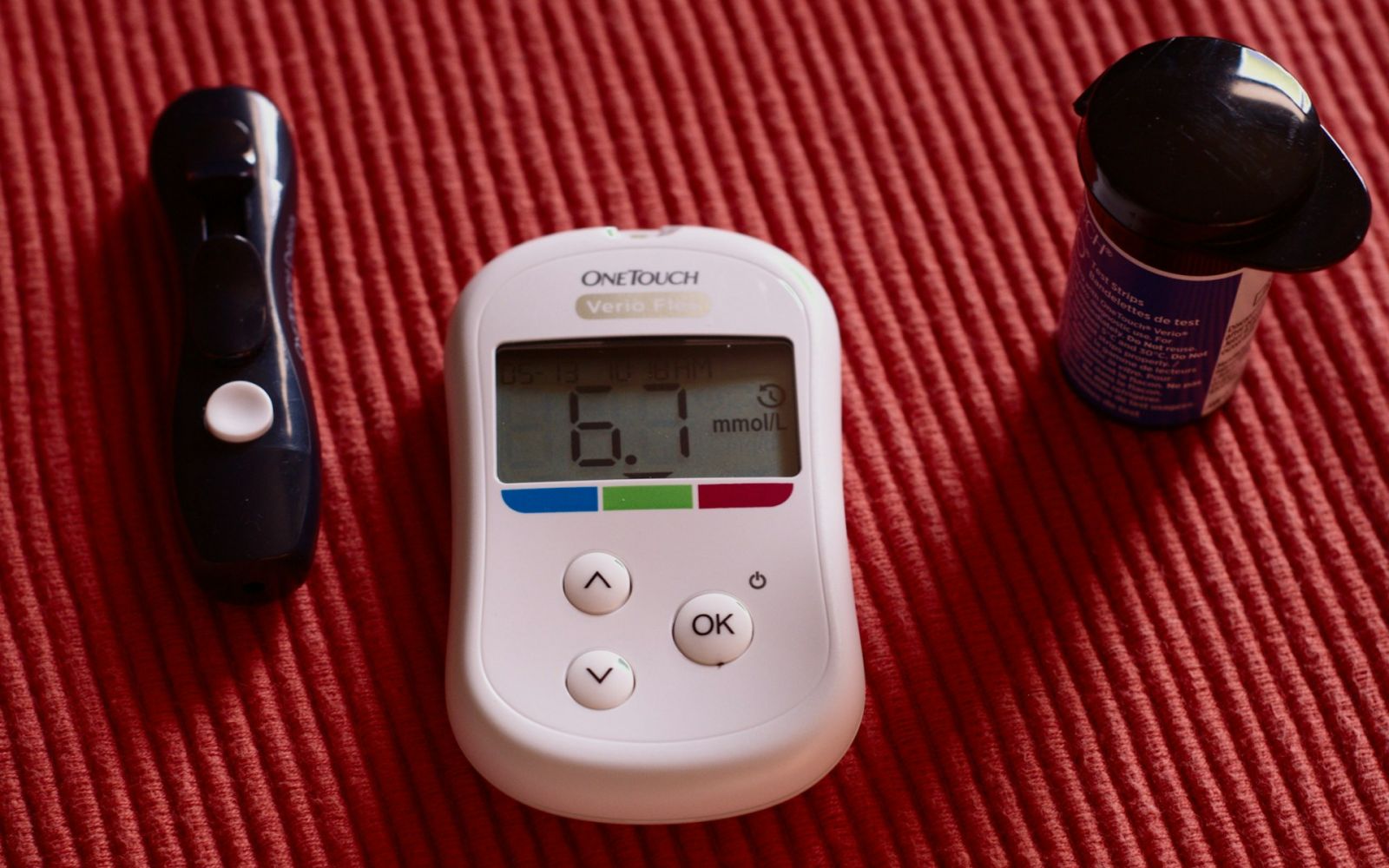Control your diabetes.
One of the keys to managing diabetes is to keep your blood sugar within a healthy range.

Most of the food you eat is converted to sugar, which is released into your bloodstream and used by the body for energy. As your blood sugar goes up, the pancreas releases insulin, a hormone that helps regulate the amount of sugar that goes into your body’s cells. Diabetes affects how your body converts food into sugar.
With diabetes, your body doesn’t make enough insulin or does not use it effectively. When this happens too much blood sugar stays in your bloodstream. Untreated, this chronic health condition can cause serious health problems, such as heart disease, vision loss and kidney disease.
Living with diabetes means you need to keep your blood sugar within a healthy range. You can take steps to control your blood sugar by monitoring what you eat, staying active and taking medications as prescribed by your doctor.
Monitor what you eat
If you have diabetes, planning what you eat can help you better manage your blood sugar. Carbs, or carbohydrates, in foods and drinks raise your blood sugar levels. How fast they raise your blood sugar depends on what the food is and what you eat it with. Eating carbs with foods that have protein, fat or fiber slows down how quickly your blood sugar rises.
Healthier food choices include:
- Non-starchy vegetables, such as broccoli, spinach and green beans.
- Foods made with “whole grains”, such as whole wheat, brown rice or oats.
- Whole foods like vegetables and fruits.
- Lean proteins like chicken, fish, eggs and tofu.
Try to eat about the same amount of carbs at each meal, which can help control your blood sugar levels. Keeping track of how many carbs you eat can help you eat the right amount.
Before making changes to your diet, ask your doctor to help you develop a meal plan. Every person is different and your diet will depend on your gender, age, weight, activity level, other medical conditions and your overall health.
Stay active
Being active means doing anything that uses more energy than sitting. This can include walking, dancing, gardening and vacuuming. Minimally, you should be active for about 2.5 hours each week.
Being active:
- Improves your body’s ability to use insulin.
- Helps lower the chance of diabetes-related problems such as heart attack and nerve damage.
- Improves your mood and energy level.
- Lowers your stress.
- Helps you get to, and maintain, a healthy weight.
You should talk with your doctor before starting any new exercise routine.
Take your medicine as instructed
If your doctor has prescribed medicines, including insulin, it is important that you take these at the right time and the right dose amount. Medicine can help:
- Keep your blood sugar within a healthy range.
- Lower your chance of diabetes-related problems to organs like your heart, eyes and kidneys.
If you have type 2 diabetes you may need more than one diabetes medicine. These medicines all work differently to help your body make more insulin, use insulin more effectively or lower your blood sugar.
In addition, you may be prescribed insulin injections. If you have type 1 diabetes you must take insulin because your body does not make it.
Questions about diabetes?
Nashville Healthcare Center provides a team of specialist who treat a wide range of conditions including diabetes. Learn more about these services and make an appointment by visiting the Nashville Healthcare Center website for more information.
The Nashville General Hospital Foundation provides additional resources to individuals and families affected by diabetes. These resources are available in both English and Spanish. Visit our diabetes resources website . Additional videos can be found on the Nashville Public Television website, including a Diabetes: General Overview video and a Diabetes-Related Illness video.
This information is not intended to be a substitute for professional medical advice. You should talk with your primary care physician or other qualified medical professionals regarding diagnosis and treatment of a health condition.
Sources:
- nashgenfoundation.org, “How to plan diabetes-friendly meals”, Nashville General Hospital Foundation, October 2023
- nashgenfoundation.org, “Your guide to living with diabetes”, Nashville General Hospital Foundation, February 2022
- cdc.gov, “Diabetes”, Centers for Disease Control and Prevention, October 4, 2023



